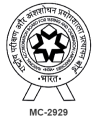Frequently Asked Questions
How do I prepare for GI surgery?
Preparing for GI surgery involves a few important steps. You may be asked to follow a specific diet, avoid certain medications, or complete a bowel preparation before the procedure. Our surgical team will provide you with detailed instructions, including any required fasting, to ensure you’re fully prepared. Please feel free to reach out with any questions as you prepare.
What should I bring with me to the hospital for my GI surgery?
Please bring essential items like your identification card, insurance details, and a list of current medications, prescription and to bring all the previous reports & films / CD of mapping (CT, MRI, PET CT). Comfortable clothing and personal hygiene items may also be useful. Avoid bringing valuables to the hospital. Our team will support you throughout your stay and make sure you’re comfortable and well-prepared for the procedure.
What happens during laparoscopic GI surgery?
In laparoscopic GI surgery, our surgeon makes a few small incisions through which specialized instruments and a tiny camera are inserted. This allows for a minimally invasive approach, often resulting in shorter recovery times and less discomfort. Throughout the procedure, our team carefully monitors all aspects to ensure safety and precision.
How long does a GI surgery procedure typically take?
The duration of GI surgeries varies depending on the complexity of the procedure. A standard laparoscopic surgery like appendectomy, cholecystectomy may take between 1 to 3 hours, while more complex surgeries could take longer. Our specialized surgeon will discuss the
expected duration and any related details with you before the procedure to help you understand what to anticipate.
What should I expect during recovery after GI surgery?
After GI surgery, you may experience some soreness and discomfort, which generally lessens within a few days. You will receive instructions on pain management, diet, and physical activity to help speed up recovery. Our team will monitor your progress and provide the support you need to make your recovery as smooth as possible.
When can I resume normal activities after GI surgery?
Recovery timelines vary depending on the type of surgery. Generally, patients can return to light activities within a week, with full recovery taking up to several weeks. Our surgeon will guide you on specific activities and exercises, usually heavy exercises are avoided for 2-3 months after major abdominal surgery, ensuring that you resume normal routines safely and at the right pace for your health.
What are the risks associated with GI surgery?
Like any surgical procedure, GI surgery carries some risks, including infection, bleeding, and adverse reactions to anesthesia. Minimally invasive techniques such as laparoscopic surgery help reduce these risks. Our team prioritizes safety and will take all necessary precautions to minimize potential risks. We’ll also provide guidance on how to manage and watch for signs of any complications.
What are the benefits of laparoscopic GI surgery compared to open surgery?
Laparoscopic GI surgery offers several advantages, including smaller incisions, reduced pain, shorter hospital stays, and quicker recovery times. This minimally invasive approach allows patients to resume normal activities sooner than with traditional open surgery. Our surgeon will discuss whether laparoscopic surgery is the right choice for you based on your condition and overall health.
Will I need follow-up visits after GI surgery?
Yes, follow-up visits are essential to ensure proper healing and to monitor for any complications. Our doctor will schedule follow-ups to assess your recovery and address any concerns you may have. These visits provide an opportunity to discuss your progress, manage pain, and adjust any medications as needed to support a complete and successful recovery.



